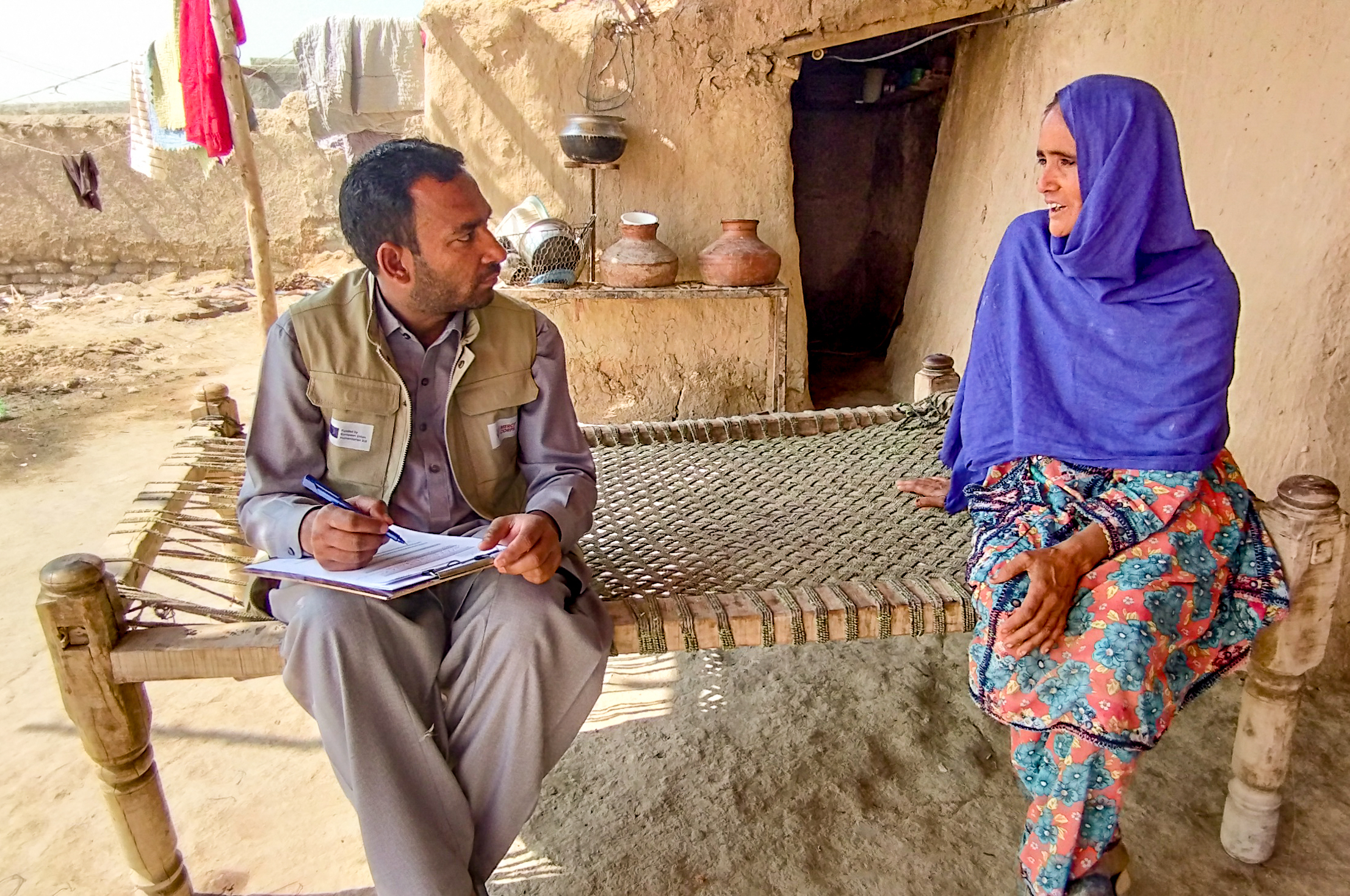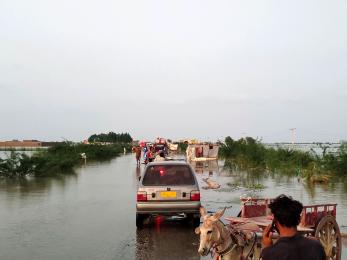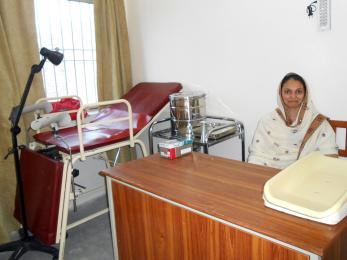Breadcrumb
Pakistan
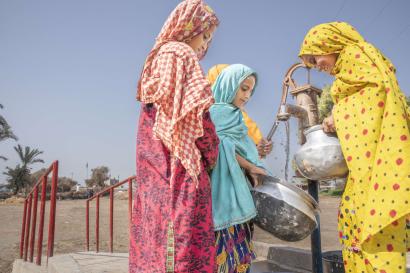
Mercy Corps has been working in Pakistan since 1986, supporting communities to build economic stability and more resilient futures. In 2024, our programs reached more than 5.6 million people across the country.
The Context
Pakistan, the world’s fifth-most populous country with over 240 million people, faces significant challenges. Unemployment, limited access to healthcare, water and food security is exacerbated by extreme weather events. Frequent natural disasters, like floods and droughts, further deepen crises, disproportionately affecting communities who have been marginalized.
Malnutrition has caused stunted growth for 40% of children under five years. According to the World Health Organization, Pakistan is ranked fifth in the number tuberculosis cases—with an estimated 510,000 new diagnoses annually. Lack of access to clean water and sanitation worsens health conditions and ability to earn a living. According to the UN, 70 percent of households in Pakistan are drinking contaminated water. Recurring natural disasters and economic disruptions from political instability have weakened livelihoods. The agricultural sector makes up 24% of the economy and employs 37% of the workforce. Local economies, livelihoods, and food security are disrupted and destroyed when extreme weather events occur.
Our Impact
Since 1986, Mercy Corps has worked alongside communities and governments on the national and local level to build a more resilient future. Our current programs are making an impact across these areas:
Providing access to clean water and safe sanitation
Mercy Corps partners with both local public and private agencies to strengthen infrastructure and management to improve access to clean water, sanitation, and hygiene—reaching more than 820,000 people in 2024. We have built latrines, installed water supply systems, and promoted hygiene across Khyber Pakhtunkhwa, Azad Jammu and Kashmir, Sindh, and Balochistan.
We are supporting communities to improve health outcomes by upgrading water and sanitation systems in health facilities, installing handwashing stations, and strengthening community-based water management. In addition to updating and building infrastructure, Mercy Corps’ approach ensures long-term sustainability through technical training and skills development for community members managing local water systems.
Improving livelihoods and supporting small businesses
By equipping communities with skills and resources to improve economic stability, Mercy Corps is supporting more sustainable livelihoods—especially for those affected by climate change and conflict. Since 2015, for more than a decade, our programs have offered vocational training and support for people to launch small businesses, particularly for young women.
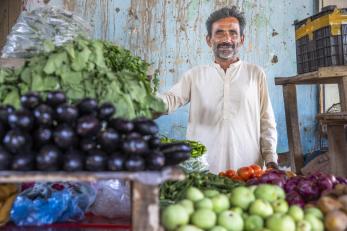
Mercy Corps has provided vocational training to both displaced and host community members, connecting participants with employment opportunities in high-demand trades. Our workshops and trainings have focused on providing participants with the necessary skills to not only earn a living but also support their communities, like training women to be community midwives who deliver maternal and child health services.
Expanding access to healthcare and nutrition
Since 2002, Mercy Corps have played a critical role in screening and treating tuberculosis in Pakistan. As part of the national tuberculosis program, we partnered with local public and private healthcare providers and agencies to detect 700,000 cases since 2015—and supporting treatment with a 93% success rate.

Our maternal and child health programs have reached 1.9 million women and children through 338 healthcare workers, ensuring lifesaving care and nutrition support. In the wake of natural disasters, we collaborate with local health authorities on our emergency response. Flood-affected communities received support through mobile health camps, which provided prenatal and postnatal consultations, diagnoses and treatment for common waterborne diseases like malaria, eye infections, typhoid, and diarrhea.
